
Regular routine maintenance prolongs the health of your vehicle and protects your investment. For helpful advice, visit your Certified Service experts at Sherwood Park Chevrolet. They can help recommend the right maintenance plan and schedule for your vehicle, based on your driving habits and conditions. In most cases, your Certified Service experts can perform a Vehicle Health Check. This thorough inspection of your vehicle will tell you what needs attention, and what can wait.
Oil Change
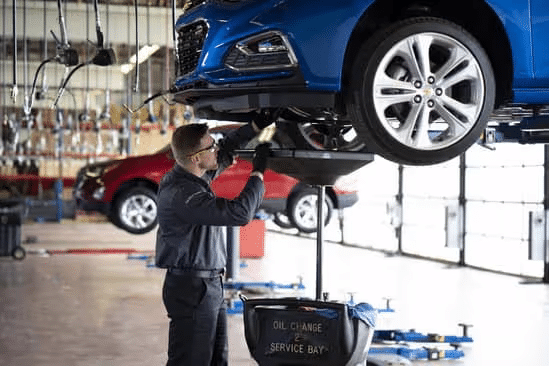
Why it’s necessary.
Clean oil is important. If left unchanged for a period of time, it can become saturated with tiny, hard particles that can wear down the surfaces of your engine. Schedule an oil and filter change regularly either when you get a notification from your vehicle’s oil life monitor or as a general rule of thumb at every 8,000km.
If you’re just needing an oil change, visit our Quick Lube Lane. No appointment is necessary. We can also complete your oil change during your regular service appointment at your vehicle’s recommended maintenance intervals.

Vehicle Health Check
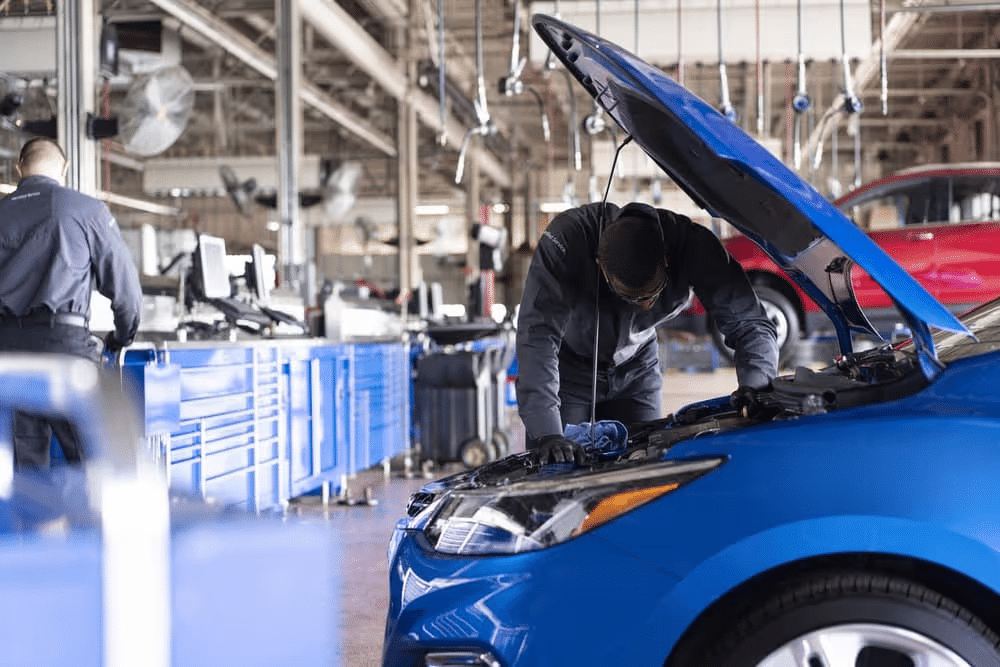
What we’re looking for.
A vehicle health check is an important part of your vehicle’s maintenance schedule. An inspection every 6 months is required as per your vehicle Owner’s Manual. It’s a multi-point inspection of your vehicle that helps you protect yourself and your automotive investment.
- Tire Wear. You trust your tires to keep you on the road, and us to make sure they’re balanced, aligned and in good condition.
- Remaining Engine Oil Life. Helpful when approaching your next oil change, this vehicle inspection determines the remaining oil life percentage.
- Brakes. The braking system is inspected, which includes lines, hoses, parking brake and measurements of the front and rear linings.
- Wiper Blades and Glass Condition. To avoid possible damage, the windshield is inspected with the front and rear wiper blades, making sure they work when needed.
- Battery Conditions and Connections. The battery’s health, remaining life and cable connections are tested and visually examined in the car inspection.
- Fluid Levels. All fluids, such as brake reservoir and windshield washer fluids, are checked to be sure they are at optimal levels during the car check.
- Additional Checks of Critical Systems. This larger, visual multi-point vehicle inspection makes sure the critical systems are in working order.

Tire Rotation, Wheel Alignment & Balance
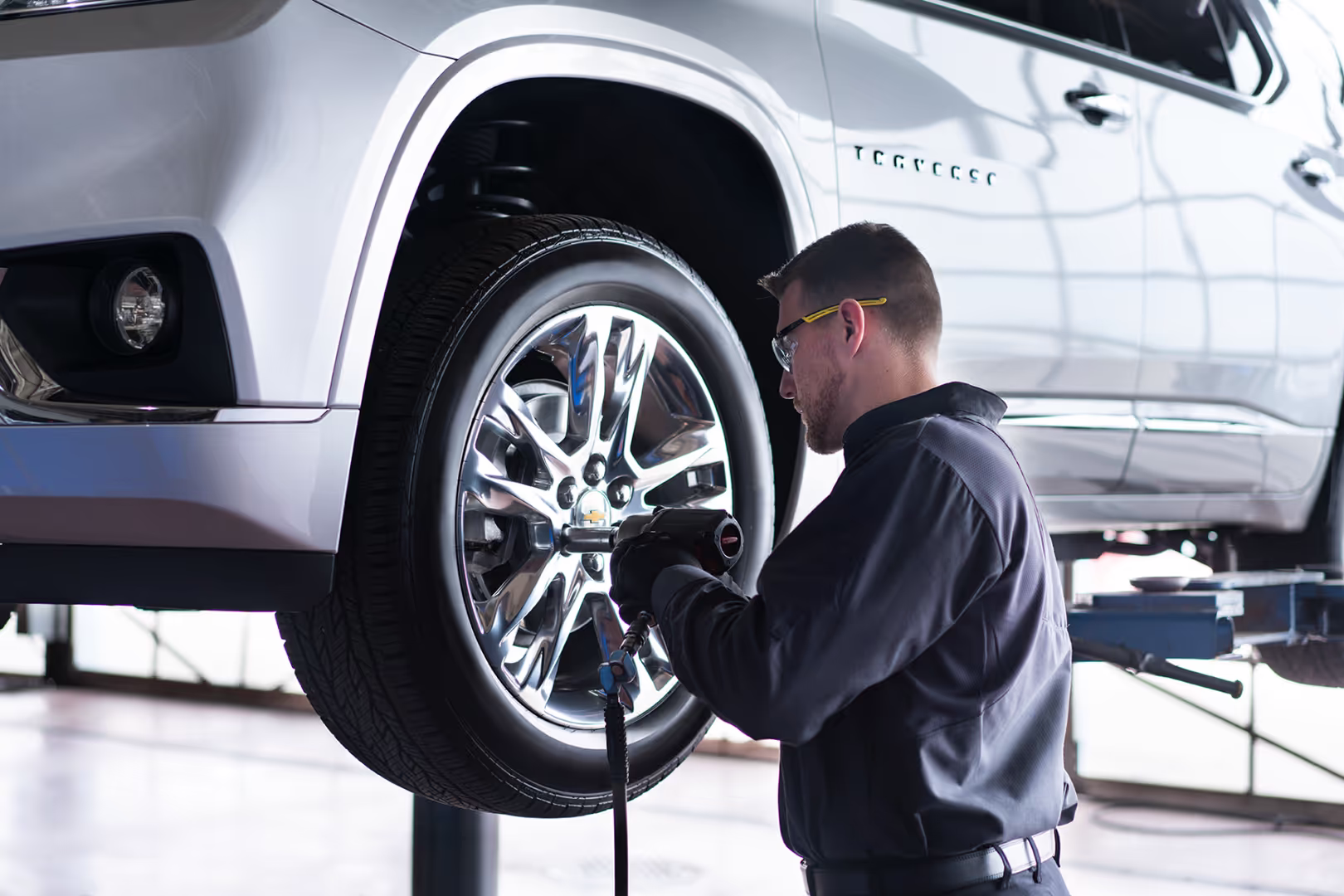
Even treadwear and tire life.
A tire rotation involves moving a tire from one position to another to ensure all tires wear evenly. Even tire wear extends the life of a set of tires. Even if your vehicle is properly aligned, tires still need to be rotated for optimal wear performance. Tires should be rotated every 6 months or 8000km.
Proper wheel alignment, often referred to as tire alignment, is key to prolonging the life of your tires, bearings, shocks, and other suspension components. A wheel alignment service greatly influences your vehicle’s performance. If your vehicle is misaligned, it can cause the tires to wear unevenly, and you may experience handling problems such as pulling or abnormal vibration.
Wheel balance, often referred to as tire balance, is also necessary to help keep your tires in good condition. A weight imbalance in every wheel assembly is unavoidable – so it’s important to make sure you get your tires rebalanced whenever you rotate or swap them to help extend their lifespan.

Filter Replacement
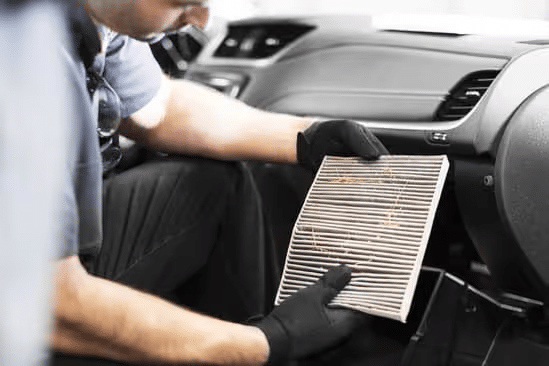
Lets clear the air.
Contaminants such as pollen, dust, smog and other pollutants can easily enter a vehicle through air conditioning, heating and ventilation systems.
Air quality inside the vehicle can actually be worse than the air found outside, yet attention to the cabin air filter can often be overlooked.
Cabin Air Filters help freshen and filter the air inside the cabin by filtering out up to 95% of unwanted pollutants. Be sure to look at the cabin air filter when checking heating or cooling systems, following maintenance information from the Owner’s Manual.
Engine Air Filters
Engine Air Filters trap airborne particles before they enter the engine without restricting airflow to the engine. The result is cleaner air entering the engine, which can help with fuel efficiency and reduce vehicle operating costs. Replacing your vehicle’s engine filter on a regularly scheduled basis can preserve the vehicle’s performance and longevity.

Brake Replacement
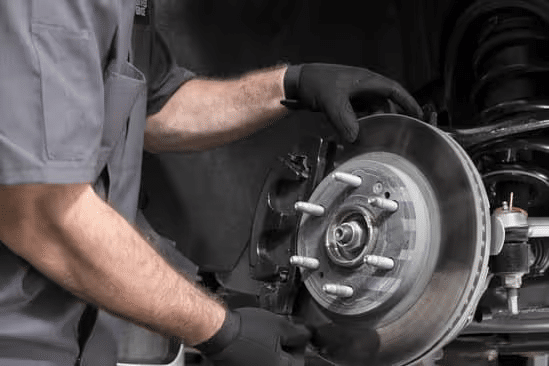
Slow down.
Factors that will reduce the longevity of your brake pads and rotors include frequent heavy braking, elevated temperatures (caused by high-speed braking, driving in the mountains, etc), routine driving with the vehicle heavily loaded and severe environments such as high-corrosion areas and areas with a lot of road debris and dust.
If you encounter chirping or grinding sounds, or a pulsation feeling through the brake pedal these are indications that a brake service or a brake repair may be required.


